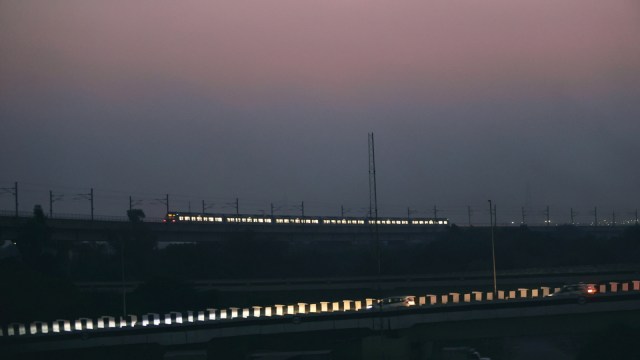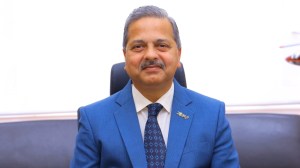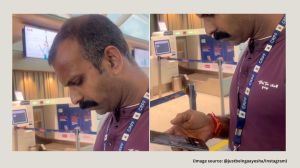The Bengaluru Metro Rail Corporation Limited (BMRCL) broke its silence on the fare fixation committee (FFC) report, with the BMRCL managing director confirming to The Indian Express on Thursday that the report will be made public soon.
Maheshwara Rao, Managing Director, BMRCL, however, avoided questions over the delay in publishing the report and did not clarify when the report would be published.

The fare fixation committee that hiked Bengaluru metro fares comprised Justice (Retd) R Tharani, former judge of the Madras High Court, along with Satyendra Pal Singh, Additional Secretary, Union Ministry of Housing and Urban Affairs, and E V Ramana Reddy, retired IAS officer and former additional chief secretary to the Government of Karnataka.
Story continues below this ad
Rao’s response came after parliamentarians, including P C Mohan and Tejasvi Surya, repeatedly requested that the report be made public. Earlier, BMRCL had declined to submit the fare fixation report under the Right to Information Act.
Surya sent a second letter to Rao on Thursday on the issue. He had earlier written on the matter on April 28. In the letter, he stated, “In the wake of the steep hike in the metro fares, public interest demands that the FFC report be made available immediately to ensure transparency and accountability. Despite the passage of considerable time and my formal request almost 10 days ago, the report has neither been published on the BMRCL website nor made accessible through any official channel. This delay stands in sharp contrast to the practices followed by other metro organisations and goes against the interest of openness and informed discourse.”
He added, “I once again urge you to promptly release the FFC report in full, without further delay. Transparency in public service delivery is essential for building trust and credibility, especially when fare decisions directly impact lakhs of daily commuters.”
The FFC was constituted in 2024 following a request from BMRCL to the Union Government for a fare revision, as metro fares had not been revised since 2017. The Union Government directed the committee to begin functioning on September 16, 2024, with a three-month deadline to submit recommendations.
Story continues below this ad
The committee studied fare revision structures of other metro systems by visiting Singapore and Hong Kong, with FFC and BMRCL officials incurring expenses of approximately Rs 12.97 lakh and Rs 12.88 lakh, respectively, for these foreign tours. The FFC visited the national capital, given Delhi Metro’s status as a leading metro system in India. The committee also consulted with Chennai Metro authorities.
The committee recommended an average fare increase of 46 per cent (after a 5 per cent discount for smart card users), though BMRCL had requested a 105.15 per cent hike, equivalent to a 14.02 per cent year-on-year increase. The FFC’s recommendation translated to a 6.87 per cent year-on-year increase. As a result, the maximum fare increased from Rs 60 to Rs 90 for distances exceeding 25 km, making it the costliest metro in India.
Following public backlash and a directive from Karnataka Chief Minister Siddaramaiah on February 13 this year, BMRCL capped the maximum stage-wise fare increase at 71 per cent (down from 105.15 per cent for certain slabs). The revised fares took effect on February 14, addressing anomalies where fares had doubled for short distances.
BMRCL cited a 42 per cent increase in staff salaries, a 366 per cent rise in maintenance and administration costs, and a 34 per cent increase in electricity bills from 2017 to March 2024. Security costs alone amount to Rs 7 crore per month (14 per cent of the Rs 50 crore monthly operational cost). BMRCL also faces significant loan repayment commitments, with Rs 770.60 crore (including Rs 647.66 crore in loans and Rs 122.94 crore in interest) due in 2024-25, projected to rise to Rs 2,776.58 crore by 2029-30.
Story continues below this ad
The fare hike also led to a 4 per cent drop in ridership (from 8.6 lakh to 8.29 lakh on February 10, 2025). By the end of February, BMRCL recorded a ridership of 2.09 crore, a 40 lakh drop from January’s 2.49 crore.









